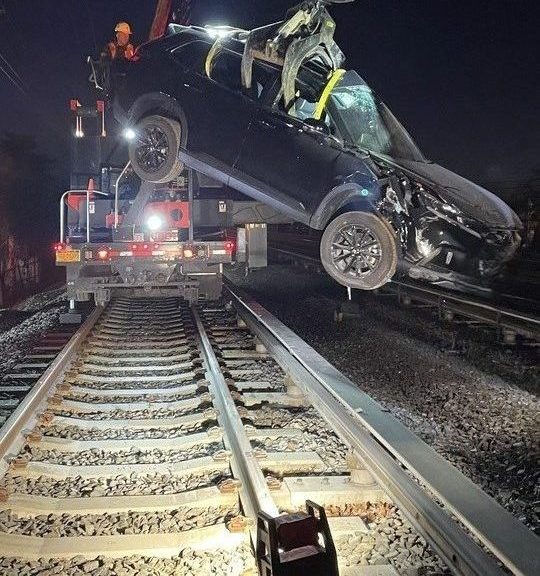Tiger Mom’s School Of Hard Knocks
I cannot remember a book that invited such a visceral reaction as Amy Chua’s, Battle Hymn of the Tiger Mother. With thousands of others, I read the sensational extract from the book written by Ms. Chua, a law professor at Yale University, published in the January 8 Wall Street Journal’s weekend edition and I was utterly mesmerized by the severity of the methods she employed in raising her two daughters. Home life seemed more like combat training for the Green Berets than a nurturing environment for bringing up two young girls.
Next to Amy Chua, Lucrezia Borgia looks like Mother Teresa. To say her methods are at variance with modern day beliefs of parenting is like saying stoning prisoners to death is at odds with the American penal code. Professor Chua, who is of Chinese ancestry, has nothing but contempt for amiable indulgences that produce soft and entitled children. This, she boldly asseverates, is a cocktail for failure and moral decrepitude.
Professor Chua’s catechism, as you might have gathered, pulls no punches: “Western parents are concerned about their children’s psyches. Chinese parents aren’t. They assume strength, not fragility, and as a result they behave very differently.” Well, there is no gainsaying the statistics regarding Asian accomplishment in America. I can’t remember how many school award ceremonies I attended where the recipient of some scholarship or academic award was given to an Asian American. That many of these students are first generation and, in fact, had to learn the English language while attending American schools makes these achievements all the more impressive.
Success in academics, success in business, strong family ties and low crime rates all define the Asian-American experience here in the United States. It is a legacy worthy of emulation; a paradigm forged by discipline, an unrelenting work ethic and a personal and collective investment in the future. But does Amy Chua’s oeuvre, a recipe of threats, harassment and brazen bullying to get her daughters to do their best in school and music, push the envelope a little too far?
Judging by the overwhelming response to her methods of child-rearing many Americans feel that Professor Chua should be locked up for child abuse. So what is this slave-driving regimen, this “Battle Hymn of the Tiger Mother” that seems more fitting for oarsmen rowing at the galleys to the crack of the whip than children trundling to school with their books? First, Tiger Mother Chua forbade any “frivolous” activities defined as anything non-academic such as play dates, sleepovers, watching television or playing video games. Her children were not allowed to play sports or be in a school play. Eschewing the sappy “we are all special” mentality. and apparently embracing George Carlin’s comic but sincere observation that despite parents’ best efforts the “vast majority of children are basically mediocre,” she was pathologically driven to see her children distinguished by success.
This required hard work and sweat; an ethos Tiger Mother relentlessly and mercilessly seared into their very soul. “Children never want to work” she observed (true, just look at the spontaneous eruption of juvenile joy when school closes because of a snow day) they must be forced to work.” When the youngest daughter, age 7, was unable to master a Mozart piano piece that required a certain technical virtuosity, Tiger Mom took action by threatening to seize the child’s beloved dollhouse, one of her few luxuries from the academic grind, and donate it to the Salvation Army. Then she kept the girl at the piano well into the night, depriving her of dinner and, despite her tears, even refusing to let the child go to the bathroom.
Such Tiger Mom endearments were not atypical. Insults would greet any slackening of effort, calling her daughters stupid and referring to them as garbage when even a hint of laziness and incompetence surfaced. Any notion that these harsh tactics would wound the child’s self-esteem was cavalierly dismissed as another western hang-up that served only to produce weak, shallow and inadequate adults. Self-esteem is acquired, argued Tiger Mother, plausibly enough, not with gushing sentimentality about a child’s specialness but the result of accomplishing something difficult.
It seemed that Tiger Mom was prepared, if necessary, to jump in with karate chops and well-directed kung fu kicks if all other tactics with her children failed. There was no doubt that Professor Chua took her job as mother seriously, devoting herself completely to her children’s success, sparing no effort. There was no doubt she was also successful. Her children are brilliant academic stars, straight “A” students and yes, that little girl was able to play that piano recital near perfectly before she went to bed and today, as a teenager, she has already performed at Carnegie Hall.
But such stories about breeding success should come with a warning label advising that such things should not be tried alone at home. There are caveats to these triumphs: first, Tiger Mom’s daughters are very smart. Not only is their mother a law professor at Yale, so is their father. Since intelligence has an inheritable component, saying that the children of two Ivy League professors will most likely be intelligent is not unlike saying the progeny of two basketball centers will probably be tall. How can they miss academically when nurtured in an environment dedicated to learning and achievement?
I cannot, however, endorse Tiger Mom’s procrustean methods for no other reason than that many people are not academically inclined. This is not necessarily a bad thing, in fact, it’s a good thing. It takes many people to make a world. I fondly recall the story of a debate between a father, a plumber by trade, and his son who was studying for his doctorate. The son dismissed his father during the disagreement by essentially asking what a plumber really knows. The father, instead of taking offense, offered this scenario to his son: If you took all the college professors and lined them up against one wall and then you took all the plumbers and lined them up against another wall and then you machine gunned them down who do you think the world will miss most?
The other reason I would oppose such Draconian parental discipline is my belief that everyone is entitled to a childhood, and though childhood and adolescence can be postponed it cannot be avoided. A too smothering atmosphere where Johnny’s all work and no play is socially stunting; for it is while playing that we first become socialized. John Stuart Mill’s father, a philosopher, so exhaustively schooled his son that though he became the most erudite youngster of the age the strain told when he suffered a nervous breakdown at 20, from which he only slowly and painfully recovered. In a follow-up interview with The New York Times Professor Chua admitted that her youngest daughter, on reaching her teens, had temper tantrums, breaking glasses and telling her mother, “I hate my life, I hate you.”
Still, there is something to say for the Tiger Mom mentality in a culture like ours that overvalues self-esteem and self-discovery, both of which frequently lead to self-preoccupation. There are a lot of thieves, malcontents and even murderers that think very highly of themselves. Epictetus had it right when he said that “Neither pleasure nor the avoidance of pain should be the chief concern of life but Duty not only in grandiose terms but in the smaller relations of life: Work, family, friends.”
It is good that indolence and sloth are frowned upon since they are failure’s surest and most reliable accomplices. Our kids are surely good kids but it strikes me the young can use, every now and then, a good swift kick in the pants telling them to stop bellyaching and put their nose to the proverbial grindstone. No one, after all, ever got anywhere without exerting themselves. If that bit of advice doesn’t work, arrange a student exchange program for the little darlings to spend a semester or two at Tiger Mom’s school of hard knocks — she’ll straighten them out.


























